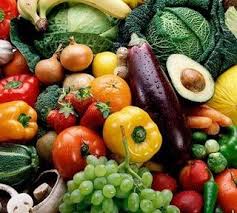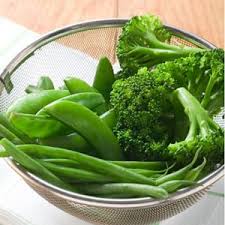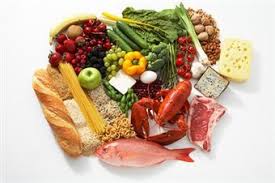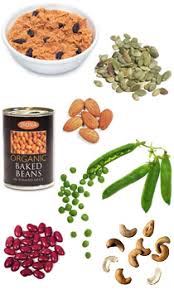When it comes to foods for the eyes, carrots are right on top of everyone's list. However, this rich source of vitamin A is not the only ingredient of ahealthy eye diet.
Vitamin A prevents night blindness and focal drying of the eyes called Xerophthalmia and can retard the development of cataracts and macular age related changes.

You can get vitamin A from two types of food sources: Animal products that contain vitamin A (such as liver or butter) or plant products that contain carotene, which your body converts into vitamin A. Foods containing carotene are usually yellow or orange, or leafy and green.

Lutein and Zeaxanthin can also be very helpful for maintaining retinal health. Not only do they delay changes in the retina but also act as good protection. The best source of lutein and zeaxanthin is green, leafy vegetables, particularly spinach. Kale and collard greens are also good choices. You can also find lutein and zeaxanthin in yellow and orange fruits and vegetables, such as corn.

Vitamin C, an antioxidant, works well for the retina, delays cataracts, and is helpful in the healing and strengthening of the eye. If you smoke, drink or have diabetes, you should increase you vitamin C intake, because its levels will tend to be lower than average. Citrus fruits, berries, peppers, tropical fruits, potatoes and green, leafy vegetables are good sources.


Some minerals are very essential for the eye. Selenium, for example, both helps your body to absorb vitamin E and helps it to make its own antioxidants. Brazil nuts, yeast and seafood (like oysters) contain good amounts of selenium. Zinc helps your body to absorb vitamin A and is also part of an enzyme in your body that reduces the number of free radicals. Zinc might also protect against macular degeneration and night blindness. You can get zinc from, wheat and nuts.

The best source of omega-3 fatty acids is cold-water fish, which is high in both EPA and DHA, Alternate source include vegetable oils (including foods made from vegetable oils, like margarine); and the popular evening primrose supplements. The best way to take care of the eyes is to eat a healthy diet and to have an eye checkup at regular intervals. A six-monthly checkup after the age of 40 should be mandatory. A good checkup can detect most problems well before they occur and if existent, can be treated easily.
Vitamin A prevents night blindness and focal drying of the eyes called Xerophthalmia and can retard the development of cataracts and macular age related changes.
You can get vitamin A from two types of food sources: Animal products that contain vitamin A (such as liver or butter) or plant products that contain carotene, which your body converts into vitamin A. Foods containing carotene are usually yellow or orange, or leafy and green.
Lutein and Zeaxanthin can also be very helpful for maintaining retinal health. Not only do they delay changes in the retina but also act as good protection. The best source of lutein and zeaxanthin is green, leafy vegetables, particularly spinach. Kale and collard greens are also good choices. You can also find lutein and zeaxanthin in yellow and orange fruits and vegetables, such as corn.
Vitamin C, an antioxidant, works well for the retina, delays cataracts, and is helpful in the healing and strengthening of the eye. If you smoke, drink or have diabetes, you should increase you vitamin C intake, because its levels will tend to be lower than average. Citrus fruits, berries, peppers, tropical fruits, potatoes and green, leafy vegetables are good sources.
Some minerals are very essential for the eye. Selenium, for example, both helps your body to absorb vitamin E and helps it to make its own antioxidants. Brazil nuts, yeast and seafood (like oysters) contain good amounts of selenium. Zinc helps your body to absorb vitamin A and is also part of an enzyme in your body that reduces the number of free radicals. Zinc might also protect against macular degeneration and night blindness. You can get zinc from, wheat and nuts.
The best source of omega-3 fatty acids is cold-water fish, which is high in both EPA and DHA, Alternate source include vegetable oils (including foods made from vegetable oils, like margarine); and the popular evening primrose supplements. The best way to take care of the eyes is to eat a healthy diet and to have an eye checkup at regular intervals. A six-monthly checkup after the age of 40 should be mandatory. A good checkup can detect most problems well before they occur and if existent, can be treated easily.

No comments:
Post a Comment